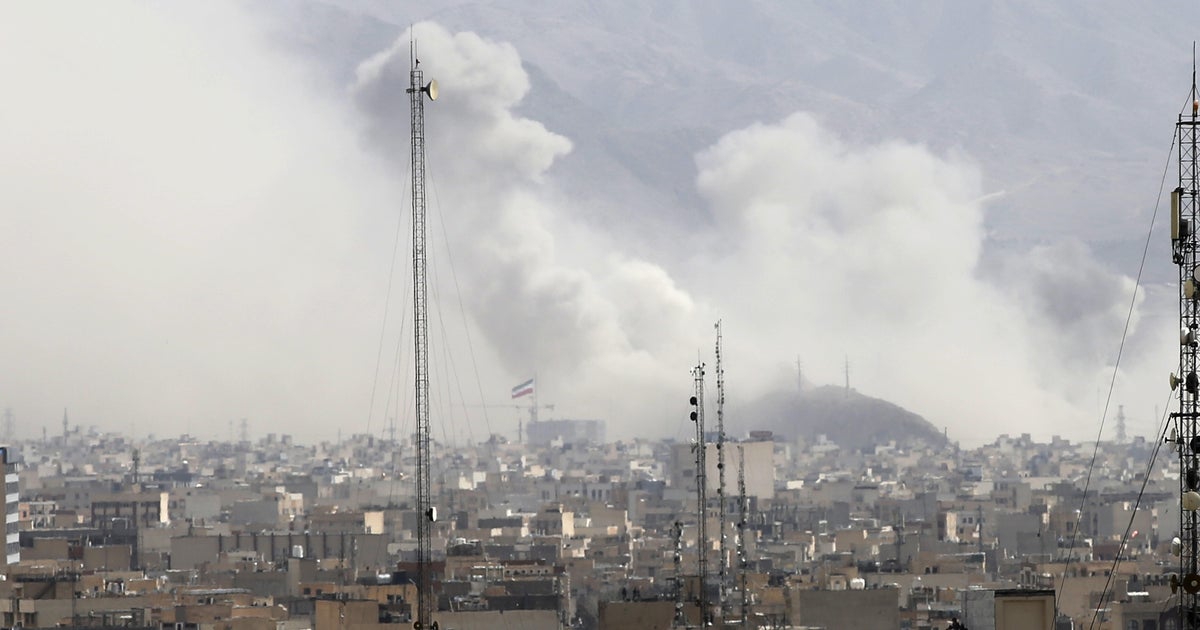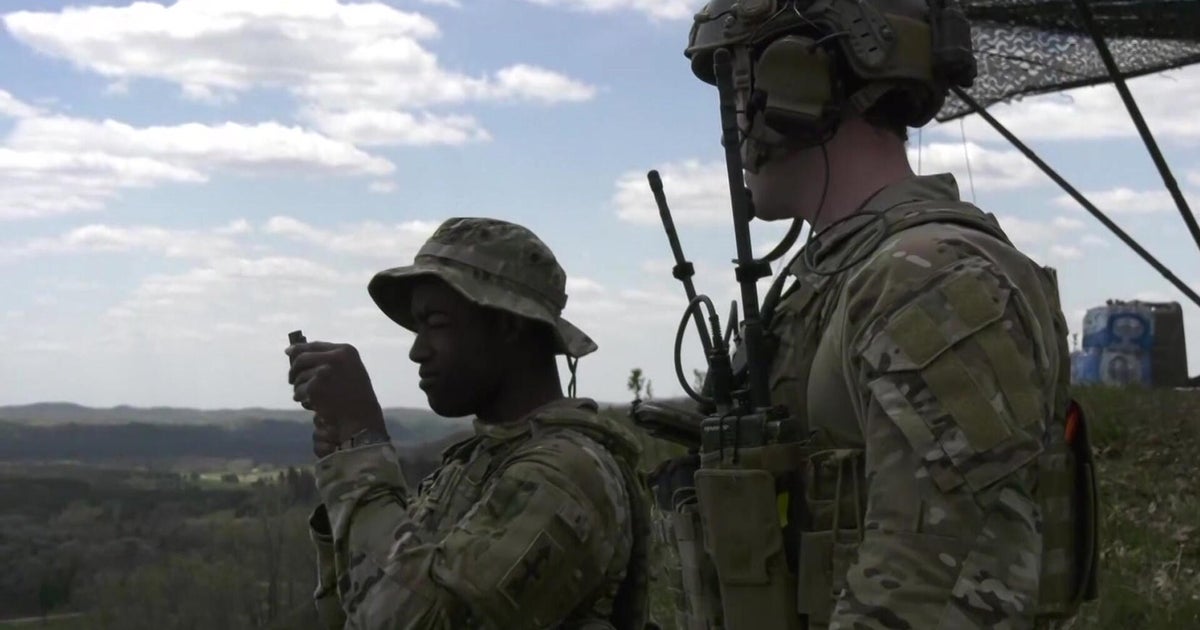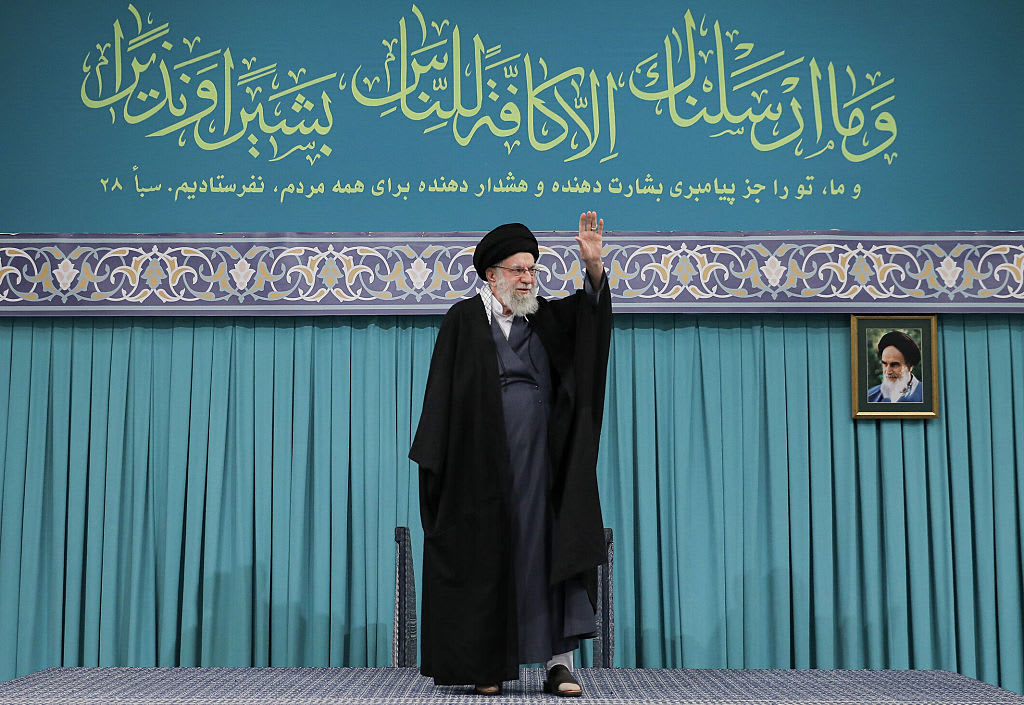U.S. warns airliners flying over Persian Gulf amid tensions with Iran
U.S. diplomats warned Saturday that commercial airliners flying over the wider Persian Gulf faced a risk of being "misidentified" amid heightened tensions between the U.S. and Iran.
The warning relayed by U.S. diplomatic posts from the Federal Aviation Administration underlined the risks the tensions pose to a region crucial to global air travel. It also came as Lloyd's of London warned of increasing risks to maritime shipping in the region.
The order relayed Saturday by U.S. diplomats in Kuwait and the UAE came from an FAA Notice to Airmen published late Thursday in the U.S. It said all commercial aircraft flying over the waters of Persian Gulf and the Gulf of Oman needed to be aware of "heightened military activities and increased political tension."
This presents "an increasing inadvertent risk to U.S. civil aviation operations due to the potential for miscalculation or misidentification," the warning said. It also said aircraft could experience interference with its navigation instruments and communications jamming "with little to no warning."
The Persian Gulf has become a major gateway for East-West travel in the aviation industry. Dubai International Airport in the United Arab Emirates, home to Emirates, is the world's busiest for international travel, while long-haul carriers Etihad and Qatar Airways also operate in the region.
Emirates, Etihad and Qatar Airways all said they were aware of the notice and their operations were unaffected.
The warning appeared rooted in what happened 30 years ago after Operation Praying Mantis, a daylong naval battle in the Persian Gulf between American forces and Iran during the country's long 1980s war with Iraq. On July 3, 1988, the USS Vincennes chased Iranian speedboats that allegedly opened fire on a helicopter into Iranian territorial waters, then mistook an Iran Air heading to Dubai for an Iranian F-14. The Vincennes fired two missiles at the airplane, killing all aboard the flight.
Concerns about a possible conflict have flared since the White House ordered warships and bombers to the region to counter an alleged, unexplained threat from Iran that has seen America order nonessential diplomatic staff out of Iraq.
Asked this week if the U.S. was going to war with Iran, President Trump said: "I hope not."
Iran's ambassador to the United Nations, Majid Takht-Ravanchi, told "Face the Nation" moderator Margaret Brennan on Thursday that he believes Mr. Trump "does not want war." On Saturday, Iranian Foreign Minister Mohammad Javad Zarif said, "There will be no war because neither we want a war, nor has anyone the idea or illusion that it can confront Iran in the region." He spoke to Iran's official IRNA news agency, the Reuters news agency reported.
The USS Abraham Lincoln and its carrier strike group have yet to reach the Strait of Hormuz, the narrow mouth of the Persian Gulf through which a third of all oil traded at sea passes. A Revolutionary Guard deputy has warned that any armed conflict would affect the global energy market. Iran long has threatened to be able to shut off the strait.
On Saturday, the island nation of Bahrain ordered its citizens out of Iraq and Iran over regional tensions. Meanwhile, oil giant ExxonMobil began evacuating staff from Basra, Iraq, where the U.S. Consulate has been closed for months following a rocket attack the U.S. blamed on Shiite militias backed by Iran, local authorities said.
This all takes root in Mr. Trump's decision last year to withdraw the U.S. from the 2015 nuclear accord between Iran and world powers and impose wide-reaching sanctions. Iran just announced it would begin backing away from terms of the deal, setting a 60-day deadline for Europe to come up with new terms or it would begin enriching uranium closer to weapons-grade levels. Tehran long has insisted it does not seek nuclear weapons, though the West fears its program could allow it to build atomic bombs.



